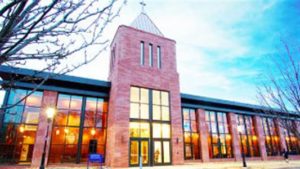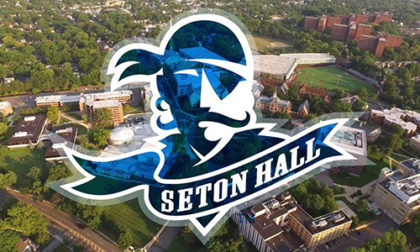Seton Hall University Releases Latest Sports Poll Findings
New Jersey’s Seton Hall University has released the results of the latest rendition of its Seton Hall Sports Poll, an ongoing series of public-opinion surveys that examine various aspects of the United States’ sports culture. This most recent iteration of the poll deals with sports betting in general, including whether the activity should be legalized and whether it will have a negative effect on the sports where activity and outcomes could be wagered.
The topline numbers appear to offer a thin disconnect: A solid majority of Americans — 55% to 35%, with 10% having no opinion — believe that sports betting should be legal. A thinner majority of the same respondents — 48% to 42% — also believe that allowing legalized sports wagering might also negatively impact the integrity of the games.
 The findings are interesting, if not earth-shattering, and they’ve drawn a little bit of extra media attention as New Jersey and other states across the US await the Supreme Court ruling in the “Christie II” case, which might open the door to legalized sports wagering in a probable majority of US states.
The findings are interesting, if not earth-shattering, and they’ve drawn a little bit of extra media attention as New Jersey and other states across the US await the Supreme Court ruling in the “Christie II” case, which might open the door to legalized sports wagering in a probable majority of US states.
“It’s outrageous when you think about it,” noted Rick Gentile, director of the Sharkey Institute-sponsored poll. Gentile is also a faculty member at Seton Hall as well as being a long-time executive vice president at CBS Sports. “It comes close to saying, ‘We don’t care about the legitimacy of the games, what matters is being able to bet on them. A majority favors gambling, and by a slimmer margin think the games might be fixed as a result.”
Another line from the findings adds that, “Even among those favoring legalized gambling, one of three believes that it would have a negative impact.”
Also worth mentioning is the survey’s omission of the raw text of the questions being asked, since such phone surveys are highly susceptible to the inclusion of leading questions. Since Seton Hall is a religiously affiliated (Catholic) university with a pre-supposed skew against gambling activity, the whole thing comes off as a “Woe is us” lament regarding the state of American societal beliefs.
Therefore, regarding that seemingly incongruous split, it’s more a case of not believing the hype, and recognizing that the findings aren’t so outrageous after all. The real reason for the perceived logical split is the long, public — and, to some extent, exaggerated — history of rigged sporting events in the US, one of the most famous of which occurred almost a century ago: the infamous “Black Sox” scandal of 1919, which still leaves its imprint across American sports and legal culture. Rigged sporting events have since become one of those archetypal fixtures of pop culture, often emerging as a plot element in movies, TV and fiction.
When one asks for responses to very generalized questions as this, such culture-influenced skews will occur. It’s not outrageous; it’s just projection. But projection doesn’t sell as easily, except as a fear factor to lobby against such activity.
The poll, at least, is timely. It was conducted by telephone April 23-25 among 736 adults in the United States. The actual phone calling was done by Braun Research, on behalf of the Sharkey Institute, under the auspices of the Seton Hall study. Phone numbers were dialed from samples of both standard landline and cell phones. The error due to sampling for results based on the entire sample could be plus or minus 3.7 percentage points for the overall poll. The findings duly note that the error margin for subgroups may be higher, and in fact, are almost certain to be higher for some of the breakouts included.




















COMMENTS